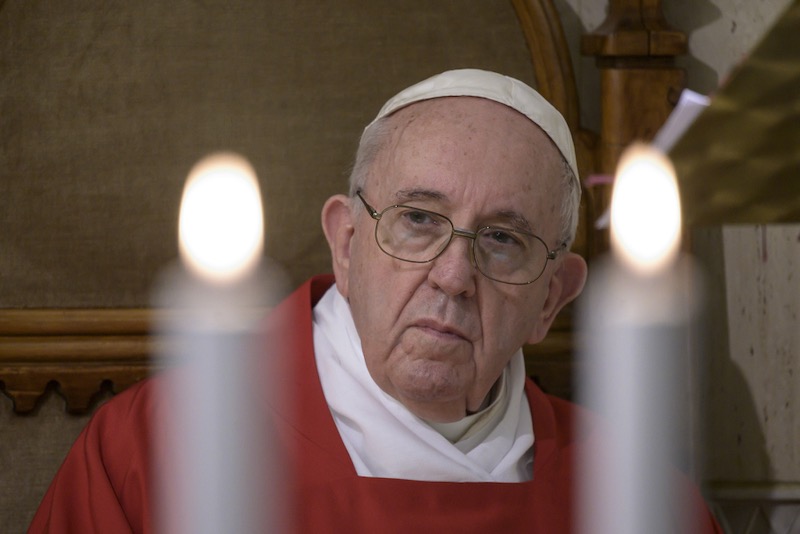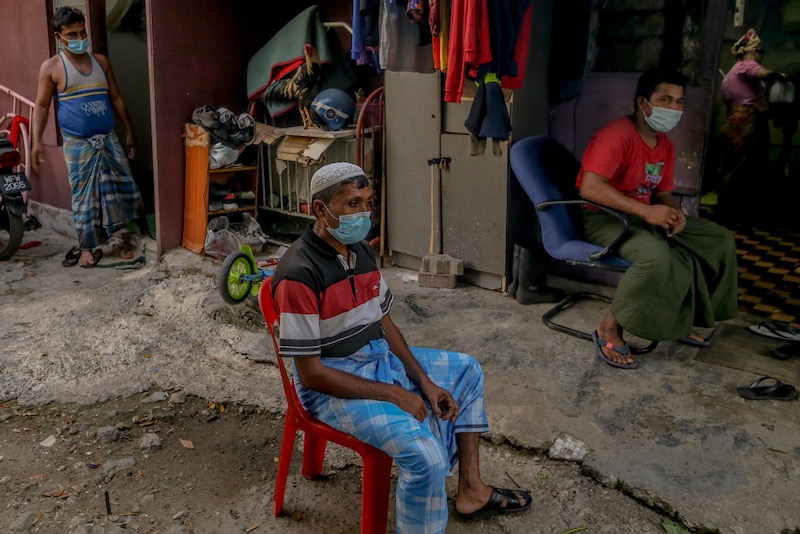Leading aid agencies are becoming increasingly concerned about the emergence of Covid-19 in refugee camps in Bangladesh.
The cases were confirmed by the prinicipal of Cox's Bazar Medical College, and the additional refugee relief and repatriation commissioner. One of the Rohigya refugees is understood to be from the Kutupalong refugee camp, while the other one is from Camp 1E.
Both of them have been placed in an isolation centre.
Jane Symes, head of Cafod in Asia, told The Tablet: “The coronavirus cases in Rohingya refugee camps in Bangladesh's Cox's Bazar are terrifying news. Crowded conditions mean that physical distancing is not possible, and many households do not have regular supplies of clean water, so the virus can spread quickly from camp to camp, family to family.
“The spread of this virus will further exacerbate the struggle people have in providing food for themselves and will overwhelm the already limited healthcare provision in the camps.”
She said local Catholic church aid workers from Caritas Bangladesh are doing all that they can to get emergency food, clean water and Covid-19 prevention information to camp communities.
Cafod, who are working closely with Caritas Bangladesh, has been rebuilding and improving shelters in the Rohingya refugee camp, where overcrowding is rife and social distancing extremely hard, warned that the two cases mean thousands of families are at risk.
Since 2017, more than 700,000 Rohingya refugees have fled from Myanmar and now live in makeshift shelters in Cox's Bazar, Bangladesh. Most of these refugees – mainly women and children – continue to need emergency aid.
The Rohingya are a predominately Muslim ethnic group that has lived for centuries in Myanmar’s Rakhine region, making up roughly 2 per cent of the population. There are still people fleeing Myanmar and arriving in Bangladesh.
Despite the conditions in the camps in Bangladesh, many Rohingya refugees prefer to remain rather than risk their lives by returning home.
During his visit to Bangladesh at the end of November 2017, Pope Francis urged the international community to take “decisive measures” to resolve the causes of the mass exodus of Rohingya Muslims from Myanmar.
In a speech before Bangladesh’s President Abdul Hamid, government officials and ambassadors from around the world, Pope Francis praised Bangladesh’s sacrifice and generosity in welcoming in so many refugees “before the eyes of the whole world”.
At the start of the pandemic, the UK's Bishop Paul McAleenan has called on the government and Catholic community to ensure that vulnerable migrants and refugees are not overlooked in the response to the Covid-19 pandemic:
“In supporting the Government’s recommendations to curtail the spread of Covid-19 the Church keeps in mind migrants and refugees. We must never forget that they are included among the vulnerable,” he said.
Cecilia Taylor-Camara, senior advisor for migration and refugee policy at the Catholic Bishops’ Conference said: “We are particularly concerned about the lack of emergency accommodation for people to self-isolate and socially distance themselves. Many undocumented migrants and people who have been refused asylum have nowhere to go, leaving them at extraordinary risk and undermining efforts to prevent transmission. Those same people will also struggle to access healthcare and may be unclear about whether they can seek help from the NHS.
“At the same time it is important not to forget refugees in other parts of the world, many who are facing this crisis in overcrowded conditions with little access to healthcare at all.”
Since fleeing from brutal persecution in Myanmar, almost one million Rohingya Muslims have been living in densely packed refugee camps in Bangladesh. Now they face a new threat in the coronavirus, and a draconian lockdown by their reluctant hosts isn’t helping. Read Richard Cockett in this week's print edition of The Tablet.
Donate to CAFOD's Coronavirus Appeal



 Loading ...
Loading ...